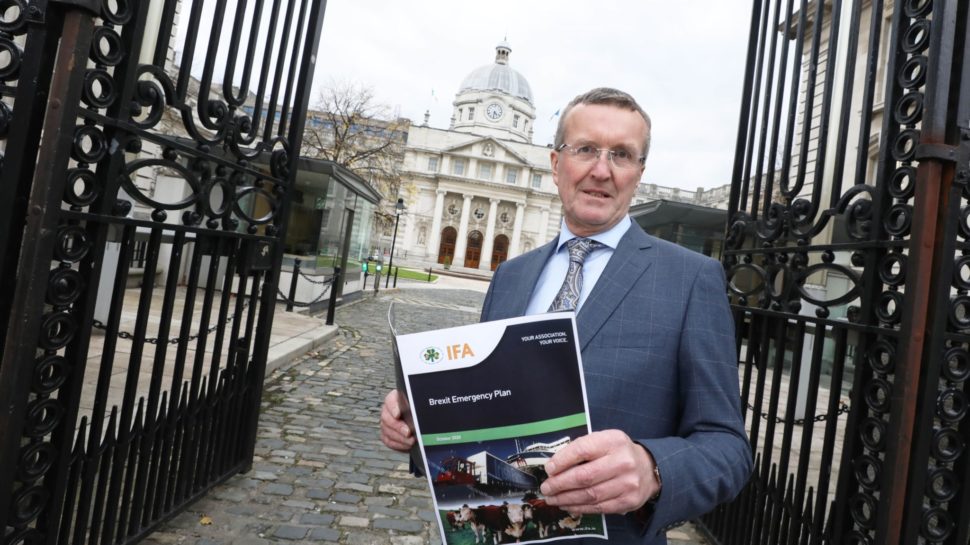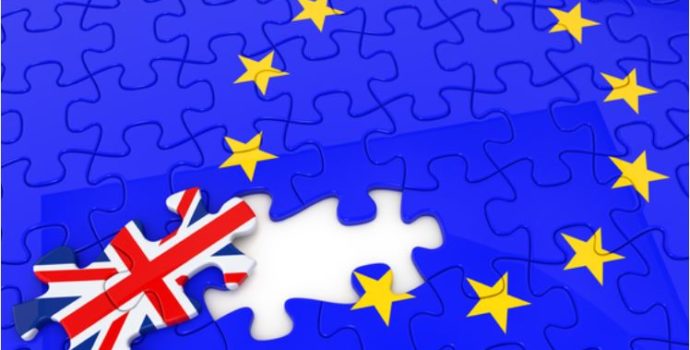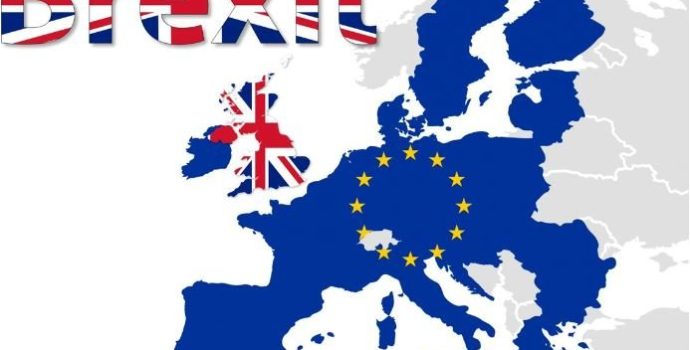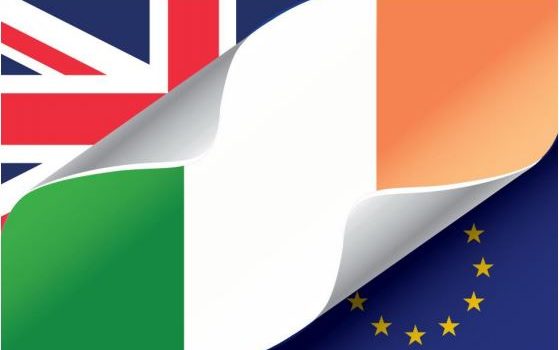EU Needs to Be on Trade War Footing as Brexit Endgame Approaches

Ahead of this afternoon’s EU summit in Brussels, IFA has launched a Brexit Emergency Policy – https://ifalegacystagi.wpengine.com/BrexitPlan – paper which sets a 3-step plan to mitigate the damage to Irish farming from Brexit.
IFA President Tim Cullinan said first and foremost, “We need a deal to try and keep our exports flowing into the UK without tariffs or quotas. However, the EU Commission has to start preparing the EU market for a bad outcome. We need a clear plan from the EU on how they intend to support farmers in a no-deal scenario.”
“With a limited deal or a no-deal, 38% or €5.5bn worth of Irish agri-food exports to the UK are at risk. If the UK fails to agree on a trade deal, the Brexit Readiness Action Plan estimates the cost of import tariffs will be between €1.3bn and €1.5bn. This would effectively start a trade war between the EU and the UK,” he said.
“The recent decision by the House of Commons to reject amendments to set minimum food standards shows that the Boris Johnson Government is planning to use access to their food market as their trump card in trade negotiations with 3rd countries. This will undermine the value of the British market for Irish produce,” he said.
“This is an unprecedented scenario, but the most comparable situation in the EU was when Russia banned all EU exports in 2014. At that time, the EU put a suite of measures in place which cost €1bn, but the impact of Brexit would have eight times that impact,” he said.
“These are the types of measures we will need but at a much larger scale. While the EU has created a Brexit contingency fund of €5bn, we need to see an implementation plan,” he said.
The paper, jointly prepared by Cúl Dara consultancy and IFA, sets out three steps the Commission needs to take to ensure that Irish farming is protected.
- Step 1 looks for trade based on tariff-free and quota-free access; full recognition for the Irish protocol; and regulations at borders.
- Step 2 calls for a suspension of imports, particularly from Mercosur; the suspension of trade negotiations on sensitive products and State Aid rules; and support for direct shipping to the EU.
- Step 3 deals with the €5bn Brexit fund, which must increase in all scenarios. This step must also provide full compensation for any losses arising from Brexit, including Sterling volatility, for all sectors. It’s also looking for an increase in the Government’s contingency fund and a commitment from food processors to show loyalty to Irish product.




